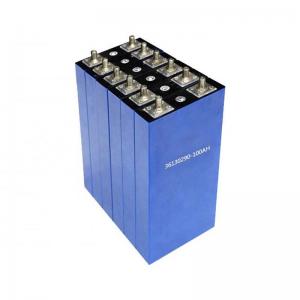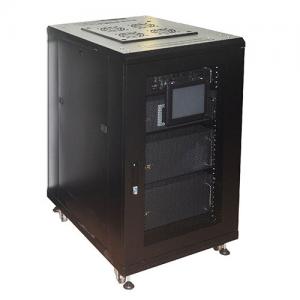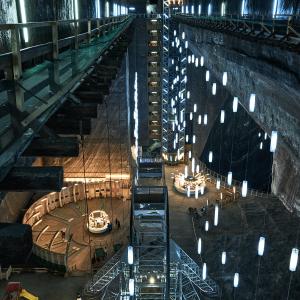Off Grid Inverters:What Is It And How To Choosing
What is an off-grid inverter?
Off-grid inverters are commonly used in various applications, including off-grid cabins, remote homes, RVs (recreational vehicles), boats, and in regions with unreliable grid power. They are a crucial component in off-grid renewable energy systems, providing a means to convert and manage renewable energy into usable electricity for daily needs.
How to choosing the Right Off-Grid Inverter?
Choosing the right off-grid inverter is a critical decision when setting up an off-grid power system. Here are the steps and considerations to help you make an informed choice:
1. Determine Your Power Requirements:
Start by calculating your power consumption needs. List all the electrical appliances and devices you plan to run, along with their power ratings (in watts or kilowatts) and estimated daily usage.
2. Select Inverter Type:
Decide whether you need a pure sine wave inverter or a modified sine wave inverter. Pure sine wave inverters are more suitable for sensitive electronics and appliances, while modified sine wave inverters are more affordable but may not be compatible with all devices.
3. Inverter Capacity (Wattage):
Choose an inverter with a capacity that can comfortably handle your peak power demands. Ensure it has enough wattage to start high-power devices (like refrigerators or power tools).
4. Input Voltage and Voltage Range:
Determine the DC input voltage of your renewable energy source (e.g., solar panels or wind turbines). Ensure that the inverter's input voltage range matches the voltage your system generates.
5. Battery Voltage Compatibility:
Match the inverter's DC input voltage to your battery bank's voltage. Common battery voltages for off-grid systems are 12V, 24V, or 48V.
6. Efficiency and Standby Power Consumption:
Check the inverter's efficiency rating. Higher efficiency means less energy loss during the conversion process. Also, consider the inverter's standby power consumption, as this can affect long-term battery life.
7. Surge Capacity:
Look for an inverter with a surge capacity that can handle the momentary high-power demands when starting certain appliances (e.g., refrigerators, well pumps). Surge capacity is typically higher than the continuous power rating.
8. Battery Charger and AC Pass-Through:
If you plan to charge your battery bank with a generator or grid power, consider an inverter with a built-in battery charger. Some inverters also offer AC pass-through, allowing you to switch between inverter power and grid power seamlessly.
9. Monitoring and Communication Features:
Consider inverters with monitoring capabilities that provide real-time data on system performance. Some inverters offer communication options like Wi-Fi or Ethernet for remote monitoring and control.
10. Warranty and Reliability:
Research the manufacturer's reputation and warranty terms. A reliable inverter with a good warranty can provide peace of mind and long-term support.
11. Budget Constraints:
Set a budget for your inverter, but keep in mind that it's a critical component of your off-grid system. Quality and reliability should be prioritized over cost savings.
12. Consult a Professional:
If you're unsure about any aspect of selecting an off-grid inverter, consider consulting with a renewable energy system professional or an electrician with experience in off-grid installations. They can provide personalized recommendations based on your specific needs.
By carefully considering these factors and doing thorough research, you can choose the right off-grid inverter that will effectively meet your power requirements and ensure the reliability of your off-grid power system.
Can off-grid inverter work without battery?
Most off-grid inverters are designed to work in conjunction with a battery bank as a crucial component of the off-grid power system. However, it is possible to operate some off-grid inverters without a battery, but their functionality may be limited, and there are important considerations to keep in mind:
1. Limited Output:
Without a battery bank to store excess energy, the inverter can only produce power when the renewable energy source (e.g., solar panels or wind turbines) is actively generating electricity. When the renewable energy source is not producing power (e.g., during the night for solar panels), the inverter cannot provide power to your loads.
2. Instantaneous Demand:
Off-grid inverters without batteries may be able to handle the instantaneous power demands of your electrical loads while the renewable source is generating power. However, they cannot provide sustained power during periods when the renewable source is not active.
3. No Energy Storage:
Without a battery, any excess electricity generated by the renewable source that is not immediately consumed by your loads will be wasted. This can be inefficient and result in an inconsistent power supply.
4. Grid Tie Not Possible:
Off-grid inverters are typically designed to work independently of the grid, and they may not have the capability to synchronize with the grid or export excess power to it. This can limit your options for selling excess power or utilizing grid backup.
5. Load Considerations:
The types of loads you can power without a battery will depend on the inverter's capacity and the power demands of your appliances. High-power loads or loads with starting surges may not be supported without a battery.
In summary, while it is possible to operate some off-grid inverters without a battery, it is not the most practical or efficient way to use them. Off-grid inverters are generally designed to work in combination with energy storage (batteries) to ensure a consistent power supply in off-grid applications, providing power when the renewable energy source is not actively generating electricity. If you don't plan to use batteries, you may want to consider alternative solutions, such as grid-tied inverters for net metering or hybrid inverters that can operate in grid-tied and off-grid modes.





